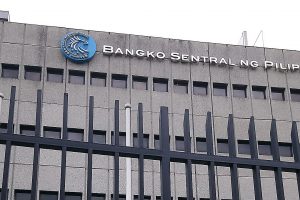PSA liberalization seen stunting domestic firms

A GROUP of scientists said on Monday that the loosening of foreign investment restrictions resulting from the amendment of the Public Service Act (PSA) will hamper the development of some domestic industries and make the economy more reliant on imports.
In a statement, the Advocates of Science and Technology for the People (AGHAM) said Republic Act (RA) No. 11659, which amends the 85-year-old PSA, heralds “the incessant erosion of our economic and industrial capacities and will only deepen our dependence on an import-driven economy.”
AGHAM said the amendments are not expected to effect a sustainable economic recovery, noting that trade and investment liberalization have prevented the Philippines from developing its own industries.
AGHAM said manufacturing has not posted any significant growth since tariffs were lowered on imports to 5% from 70% starting in the 1980s. “This was also the case in the 1990s to 2000 with a slow pace of growth (of between) 2.5% to 3.5%.”
The agriculture sector’s contribution to the economy has dwindled from 21% in 1980 to 19% in 2000 due to the tariff reform program and other trade liberalization policies, it added.
RA No. 11647 excludes telecommunications, domestic shipping, railways and subways, airlines, expressways and tollways, and airports from the public utility category. This means they will no longer be subject to the 40% foreign ownership cap for public utilities under the Constitution.
The law also bars foreign nationals from owning more than 50% of public services engaged in the operation and management of critical infrastructure, unless the foreign nationals’ government accords reciprocal rights to Filipino nationals.
Foreign state-owned enterprises are also prohibited from investing in any public service classified as a public utility or critical infrastructure.
The government is hoping the measure will help the economy recover from the pandemic by attracting foreign direct investment that creates new jobs.
AGHAM said the Philippines has the capacity to spur its own economic growth because it has all the prerequisites for industrialization.
Citing data from the World Bank, AGHAM said the Philippines has productive agricultural land, which consisted of about 41.72% of the country’s total land area as of 2018.
“The country is also endowed with mineral resources, and according to the 2014 data of the Philippine Statistics Authority, the estimated metallic and non-metallic mineral reserves that we have are around 7 billion metric tons and 50 billion metric tons, respectively,” it said. “Copper, an important component in electrical wiring and industrial machinery, is the topmost metallic mineral resource followed by nickel.”
AGHAM added: “We have an expansive resource potential attributed to the 16 sedimentary basins that (are) more than 700,000 sq. km. This is in addition to the 4,777 million barrels of oil equivalent of oil and gas reserves.”
“We call on the government to prioritize the development of our own resources, allowing farmers to enhance our agricultural land through genuine agrarian reform, and providing a thriving environment for the establishment of Filipino-owned national industries,” AGHAM said. — Kyle Aristophere T. Atienza




